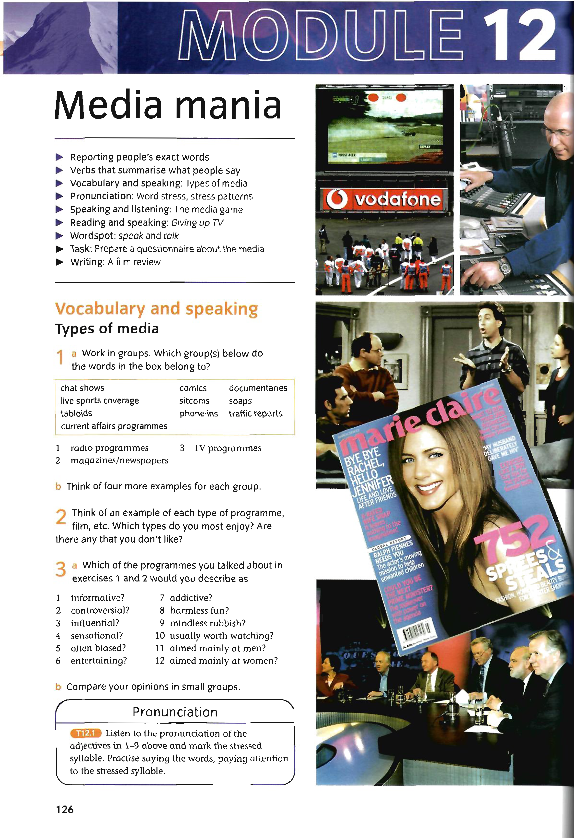Предлагаю Вам свою поэтапную разработку урока по теме «Media mania». Данный урок основан на материале учебника New Cutting Edge / Upper Intermediate (Sarah Cunningham, Peter Moor) и был проведен мною в 10 классе. Учитывая то, что материал может показаться сложным для некоторых учащихся, можно использовать его после изучения темы, посвященной телевидению, например, учебника New Millennium English для 10 класса.
Создайте Ваш сайт учителя Видеоуроки Олимпиады Вебинары для учителей
Методическая разработка урока MEDIA MANIA
Вы уже знаете о суперспособностях современного учителя?
Тратить минимум сил на подготовку и проведение уроков.
Быстро и объективно проверять знания учащихся.
Сделать изучение нового материала максимально понятным.
Избавить себя от подбора заданий и их проверки после уроков.
Наладить дисциплину на своих уроках.
Получить возможность работать творчески.
Просмотр содержимого документа
«методическая разработка урока MEDIA MANIA »
Полезное для учителя
Распродажа видеоуроков!
2160 руб.
3080 руб.
1880 руб.
2690 руб.
1880 руб.
2690 руб.
1860 руб.
2660 руб.
ПОЛУЧИТЕ СВИДЕТЕЛЬСТВО МГНОВЕННО
* Свидетельство о публикации выдается БЕСПЛАТНО, СРАЗУ же после добавления Вами Вашей работы на сайт
Удобный поиск материалов для учителей
Проверка свидетельства

















